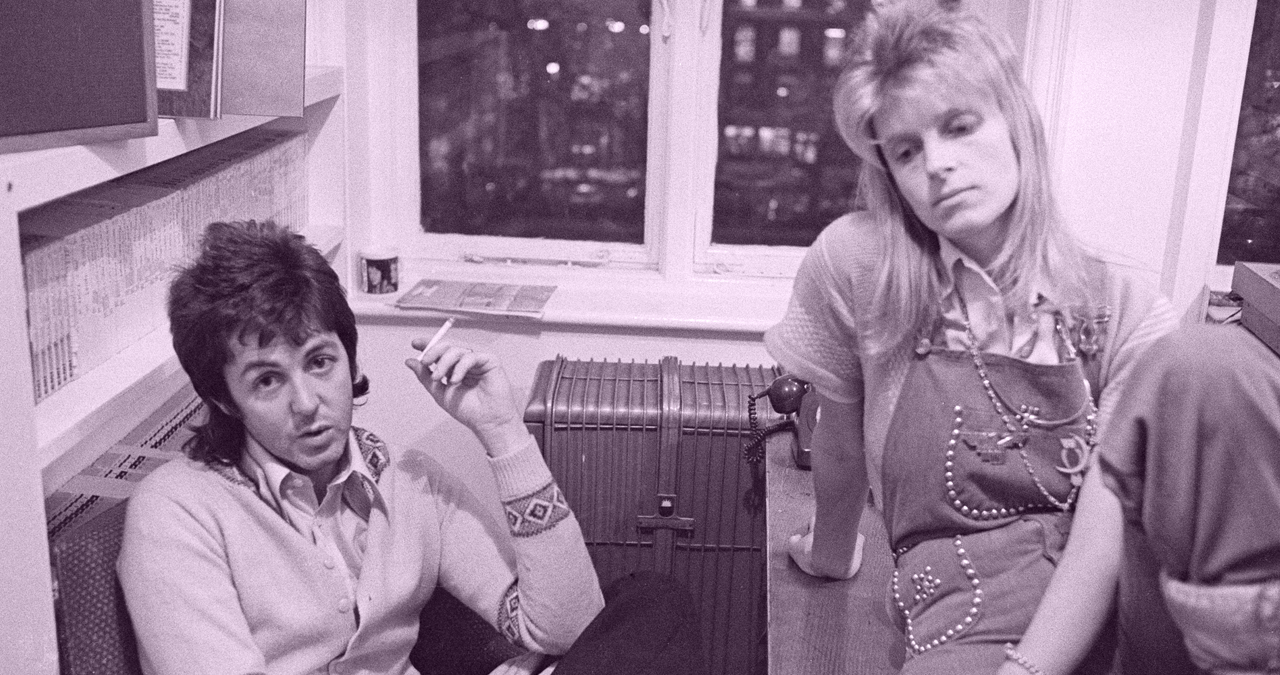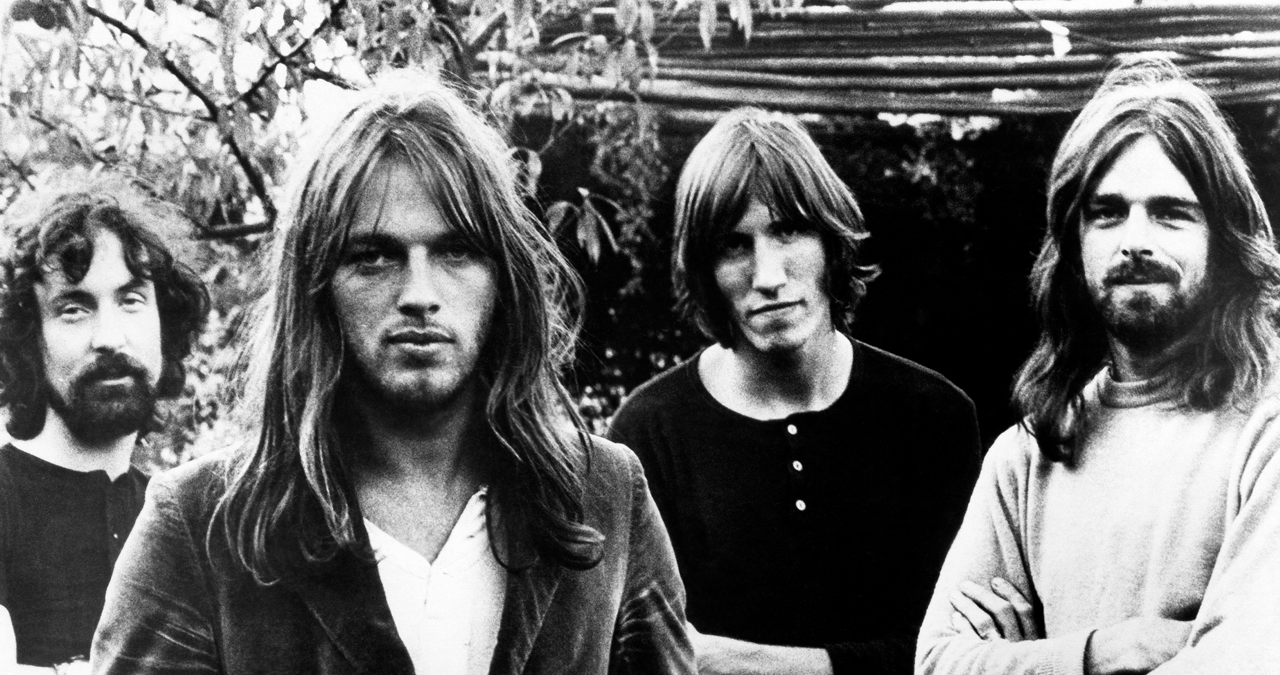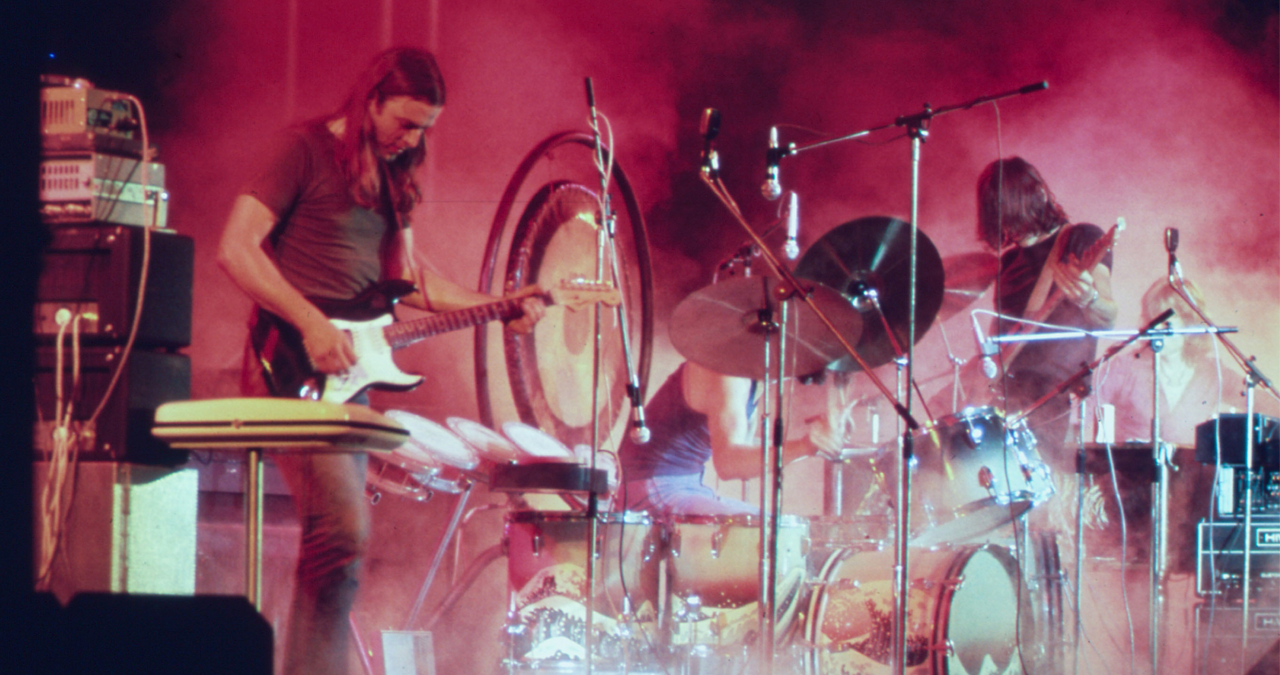“He was the only one who found it necessary to perform - which was useless”: The Beatle who had to be cut from Pink Floyd’s Dark Side of the Moon
The making of Pink Floyd’s 1973 masterpiece originally featured a cameo from one Paul McCartney - but his contribution didn’t impress Roger Waters…

Want all the hottest music and gear news, reviews, deals, features and more, direct to your inbox? Sign up here.
You are now subscribed
Your newsletter sign-up was successful
Pink Floyd’s 1973 opus The Dark Side of the Moon has an abundance of myths surrounding it. There’s its compelling, yet elusive concept - which drifts listeners along the ebb and flow of time - and out beyond the limits of sanity. Then there’s the gamut of state-of-the-art technology, synths and all-new recording processes deployed during its making. And, of course, there’s that still-persistent urban legend around it synchronising perfectly with The Wizard of Oz.
Its a record infused with magic and mystery, which didn't prevent it from becoming one of the biggest-selling albums of all time.
Apt then that such a totemic record was assembled at Abbey Road (then known as EMI Studios) - the creative HQ of the previous decade’s most prolific band.
And, an interesting (and often forgotten) event that transpired during the recording of Dark Side could have resulted in a baton-handing cameo from a former Beatle…
In late 1972, as the ‘Floyd were layering up their soon-to-be masterwork, Paul McCartney and his wife Linda were also decamped at Abbey Road. They were there to finalise the second Wings record, Red Rose Speedway.
Friendly with Roger Waters, David Gilmour, Richard Wright and Nick Mason, McCartney was intrigued by the group's developing sound, and this expansive, futuristic record that was brewing.
He'd also noted the frequent grabbing of studio personnel by various members of the band and their crew.

Having been lured off to side rooms and empty studios, this random assortment of EMI personnel were each thrown a series of questions about life, death, violence, and the moon.
The eleven questions that the Floyd members asked the various members of the EMI team (via a series of cue cards) were - according to TheDarkSideoftheMoon.co.uk - as follows:
Want all the hottest music and gear news, reviews, deals, features and more, direct to your inbox? Sign up here.
1: Why do rock and roll bands split up?
2: When was the last time you thumped someone?
3: Why did you do it?
4: Did you think you were in the right?
5: Do you still think you were in the right?
6: Are you frightened of dying?
7: Why are you frightened of dying
8: Do you ever think about the dark side of the moon?
9: Do you think you’re going mad?
10: If so, why?
11: What do you think of The Dark Side Of The Moon?
The resulting audio of the responses of the various interviewees would later be injected into Dark Side’s swirling arrangement-cauldron by the band and engineer Alan Parsons.
The resulting effect - in conjunction with a morass of other sounds (including the record’s iconic pulse motif) was oddly unsettling.
Often played back over each other, this stew of candid voices established a chilling, asylum-like ambience. Particularly on iconic opener Speak to Me and, in a more profound sense, on the towering The Great Gig in the Sky.
McCartney had long been a keen Floyd aficionado, and had previously dropped-in on the then-Syd Barrett fronted band during the recording of their debut back in 1967.
Now, he was feeling more than a little left out as their latest incarnation were becoming the talk of Abbey Road.
He was eager to get involved - even in a small way.
As documented in John Harris’ The Dark Side of the Moon: The Making of the Pink Floyd, both Paul and Linda offered their services as question-answerers.
However, sitting down with the perfectionist Waters, Paul's responses were not quite what Floyd’s perfectionist lynchpin had in mind.
“He didn't want to give anything away,” Waters reflected in an interview for Harris’ book. “He was the only one who found it necessary to perform, which was useless. I thought it was really interesting that he would do that. He was trying to be funny, which wasn't what we wanted at all. We needed people that were open and direct.”
Being one of the world’s biggest music stars - and a seasoned pro at quippy interview responses - it’s understandable that McCartney would lapse into humour during the interrogation, but what Pink Floyd wanted was a raw, human honesty. As evident on the other unstudied, off-the-cuff remarks from tape engineers, studio technicians and even Abbey Road’s doorman, Gerry O’Driscoll.
So, sadly for Paul and Linda, their responses were rejected.
Yet another member of Wings - lead guitarist Henry McCullough - did in fact appear on the album, his being the characterful voice that utters perhaps the album’s most smile-inducing line; “I don't know; I was really drunk at the time" at the end of Money as it bleeds into the crystalline, organ-soaked intro of Us and Them.

Though McCartney’s interview contribution wasn’t used on the record (wonder where the tape ended up?, Ed) the Beatles did make a sort-of ghostly appearance on Dark Side of the Moon - albeit in the most subtle way possible.
As the end of Dark Side’s final cut, Eclipse, fades out, a short passage from an orchestral arrangement (conducted by the Hollyridge Strings) of the Beatles' 1965 single Ticket to Ride can be very faintly heard within the mix.
Allegedly, this was being played in the background of the studio while a recording of Abbey Road doorman, Gerry O’Driscoll was being taped (the part stating: “There is no dark side of the moon, really. Matter of fact, it’s all dark. The only thing that makes it look light is the sun.”)
It was so far-off, it slipped through into the album's final pressing, baked-in to O'Driscoll's audio.
Fate, then, had decided that a just-about audible Beatles cameo would be present on this most groundbreaking of albums.

I'm Andy, the Music-Making Ed here at MusicRadar. My work explores the inner-workings of how music is made and frequently digs into the history and development of popular music.
Previously the editor of Computer Music, my career has included editing MusicTech magazine and website and writing about music-making and listening for a range of titles including NME, Classic Pop, Audio Media International, Guitar.com and Uncut.
When I'm not writing about music, I'm making it. I release tracks under the name ALP.
You must confirm your public display name before commenting
Please logout and then login again, you will then be prompted to enter your display name.

